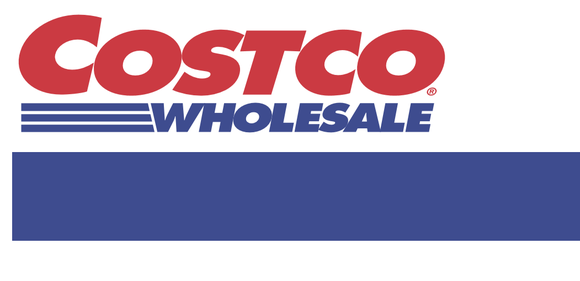How 1 Big Concern Overshadowed Costco's Successful Year
The retail world has evolved quickly, but Costco Wholesale (NASDAQ: COST) hasn't lost a step in keeping up with changing conditions in the industry. The warehouse retailer still draws a loyal crowd of shoppers to its physical locations, and it's also worked hard to build and sustain a healthy online presence to generate e-commerce sales.
Coming into its fiscal fourth-quarter financial report, Costco investors had high hopes that the company could keep making progress toward expanding its retail empire. Costco's bottom-line growth was impressive, but some shareholders were worried about a couple of things that the retailer pointed out that could create challenges going forward.

Image source: Costco.
What Costco said about its latest quarter
Costco's fiscal fourth-quarter report was mixed. Revenue was up 5% to $43.4 billion, which was roughly in line with what most of those following the stock had expected to see from the warehouse retailer. Net income came in at $1.04 billion, up 13% from year-ago levels, and the resulting earnings of $2.36 per share topped the consensus forecast among investors.
What made Costco's numbers particularly strong was the fact that the calendar made comparisons between the current and year-earlier periods not quite fair. Last year's fiscal fourth quarter had 17 weeks in it, compared to just 16 weeks in the most recent quarter. That cost the company about 6 percentage points of growth.
Costco's comparable sales figures incorporated those differences, and they showed healthier performance. Overall, total company comps were up 9.5% from the year-ago period, with U.S. gains outpacing international performance. Even after incorporating favorable changes in gasoline prices and foreign currency translations, adjusted comps of 7.2% kept up the pace of growth that Costco has achieved in recent quarters.
Especially important was growth in two areas. Comparable sales from Costco's e-commerce portal jumped 26% from year-ago levels, extending the streak of fast growth for the niche and reflecting the reward from Costco's investment in its internet and mobile presence. Also, membership fee revenue was higher by nearly 6% to $997 million, and that high-margin influx of cash was responsible for a huge portion of the warehouse retailer's overall profits.
A problem for Costco
However, there was one area that raised concerns among investors. Costco said that as it assesses its internal controls over its financial reporting practices, it expects that it will have to report a material weakness in the area. As the company explained it, issues related to user access and oversight of changes to certain information technology systems that help Costco report accurate and complete information could be problematic, especially as some users appear to have greater ability to tap into those systems than they arguably should.
Slightly less obvious but more troubling for long-term investors was the fact that operating income was essentially flat year over year. Again, some of that stagnation came from the calendar shift between the two periods, but those following the stock have to remember that the positive impact of tax reform has had a huge impact on bottom-line growth so far this year. For instance, out of the $124 million rise in net income for the company, $91 million came from reduced provisions for income taxes that stemmed from the reduction in the corporate tax rate from 35% last year to 21% this year.
Investors weren't pleased with the accounting controls issue, and the stock sank almost 6% on Friday following the Thursday evening announcement before bouncing back by 2% on Monday. As long as Costco can get its accounting controls in order, then what shareholders really need to watch is whether the warehouse retailer can sustain its growth and find new avenues for expansion as a new fiscal year begins.
More From The Motley Fool
Dan Caplinger has no position in any of the stocks mentioned. The Motley Fool recommends Costco Wholesale. The Motley Fool has a disclosure policy.

 Yahoo Finance
Yahoo Finance 